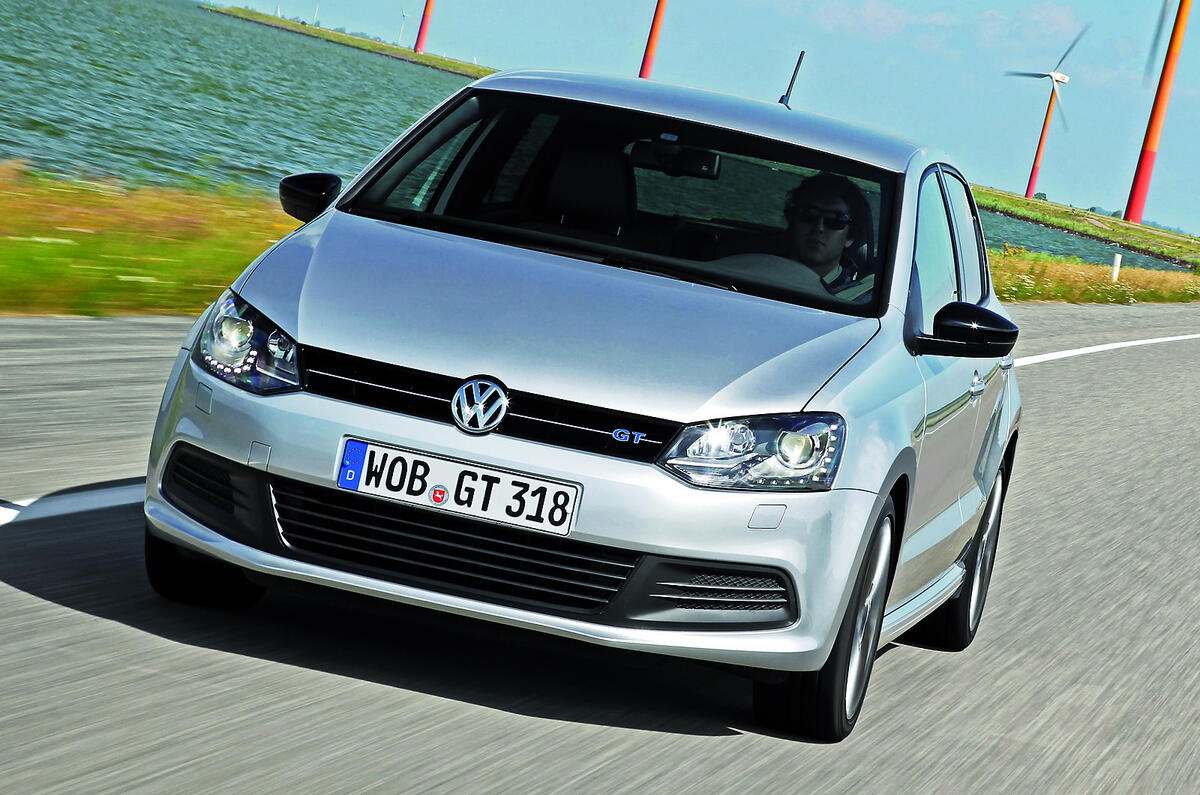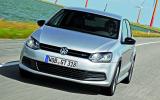What is it?
With car manufacturers seeking ever cleverer ways to reduce the consumption of their latest models to meet stringent emission standards we've been exposed to quite a lot of new fuel saving technologies n recent times.
Features such as automatic stop/start, brake energy recuperation, on-demand engine ancillaries and low rolling resistance tyres have gone from being exotic options not that long ago to just about universal standard today.
However, they're not the end of it. Because, as signs have it, there's another fuel saving technology that's about to go prime time: cylinder shutdown, or as Volkswagen prefers to refer to it, Active Cylinder Management (ACM), for small displacement engines.
Previewed by Volkswagen earlier this year, it is included on a frugal new version of the German car maker's latest turbocharged 1.4-litre four-cylinder direct injection petrol engine, the EA211 as it is known, fitted to a new sporting version of the Polo called the BlueGT.
The principle of ACM is simple, and a good deal less expensive than other systems already applied to larger capacity powerplants, with a set of electronic actuators sitting above the camshaft on the middle two cylinders controlling the movement of the valves and fuel injection.
At revs between 1400 and 4000rpm and torque loads between 18 and 74lb ft - a characteristic Volkswagen claims covers nearly 70 per cent of all driving states, the valves and injection process is shut down, effectively turning the engine into a 700cm3 twin for lower consumption and emissions, most noteably in city driving and at constant motorway speeds.
What's it like?
With 138bhp and 162lb ft, the Polo BlueGT is both eager and refined, with satisfying off the line accelerative qualities, a flexible in gear character and, thanks to a heavily overdriven seventh gear, a relaxed cruiser on the motorway. It always feels more enthusiastic than the Polo 1.2 TSI, as shown by its official 0-62mph time of 7.9sec and its 50-75mph fifth gear split of 9.5sec. Just don't expect Polo GTi levels of performance.
But its prime attraction is its economical nature. Volkswagen claims 62.7mpg, giving the Polo BlueGT average CO2 emissions of 105g/km. By comparison, the Polo 1.2 TSI is rated at 53.3mpg and 124g/km. On a 60 mile motorway run out of Amsterdam we managed 76.4mpg, proving both the worth of ACM and a series of aerodynamic tweaks brought to the new car, including bumpers, sills and rear hatch flaps brought over from the Polo BlueMotion.
The operation of ACM is virtually seamless with a display in the instrument being the only real indication of what mode you're in; there's a very slight alteration in engine character as it shuts down the valves and injection and switches into two cylinder mode. But as the pistons continue to operate within the second and third cylinders the reciprocating masses and inherent vibration does not change.
The engine never feels quite as strong in two cylinder mode as it does in four-cylinder mode, with tardier pick when you ease gently into the throttle. Push harder though and ACM switches the engine from two-cylinder back into four-cylinder mode, instantly providing the BlueGT with a full level of performance.
Should I buy one?
A game changer, then? In certain respects, yes. If the promise shown by the Polo BlueGT's new engine is any guide, cylinder shutdown is set to become an integral fuel saving feature in coming years - and not just high end models but in volume offerings, too.















Join the debate
Add your comment
I'll be very much surprised
I'll be very much surprised if it hits that 62.7mpg figure in the real world. Given how well "massaged" cars are to go through EC mpg testing, I wouldn't be surprised if it falls to mid 40s realistically.
Plus, I'm unconvinced by what message this car is giving. Is it sporty with economy, or an economy car made to look sporty? Think I'd sooner have the old 1.9 GT TDI Polo.
Too expensive
http://goo.gl/kCSQn
the link above is a 2010 Polo GTI 180 DSG for £14k, so save yourself some money, have a lot more fun and have £5k to offset the increased running costs. Eco boxes will only make sense when the prices come down, and if this new technology proves as unreliable as the twin charge engine, it might be best avoided for a year or two, until the bugs have been ironed out.
Who's right?
VW had or still have a 3 cylinder engine. So why have a 4 cylinder which shuts down 2 cylinders at certain points? We now have Ford and Renault with 3 cylinder units. Do VW know something they don't know? Time will tell! This Polo certainly doesn't look as over-styled as many new models coming out now. No doubt it will be a good seller.
As for noise levels of diesel and petrol. All things being equal a petrol will always be quieter than a diesel. Equal meaning same make.
petegeoff wrote: This Polo
Indeed but it veers the other way and is tedious with no flair.
Yes!
I think you're right. Not sure what the answer is though. Some can get quite uptight about cars, can't they? I try and take a more lighthearted approach. Although some people think I'm knocking them or their choice of cars. They are only a means of getting around. Ideally without crashing or breaking down! I'm sticking to my Toyota Yaris 1.33 MMT. 2011 Chilli Red T-Spirit. Great car. My second. I'm not worried about cars! Regards.